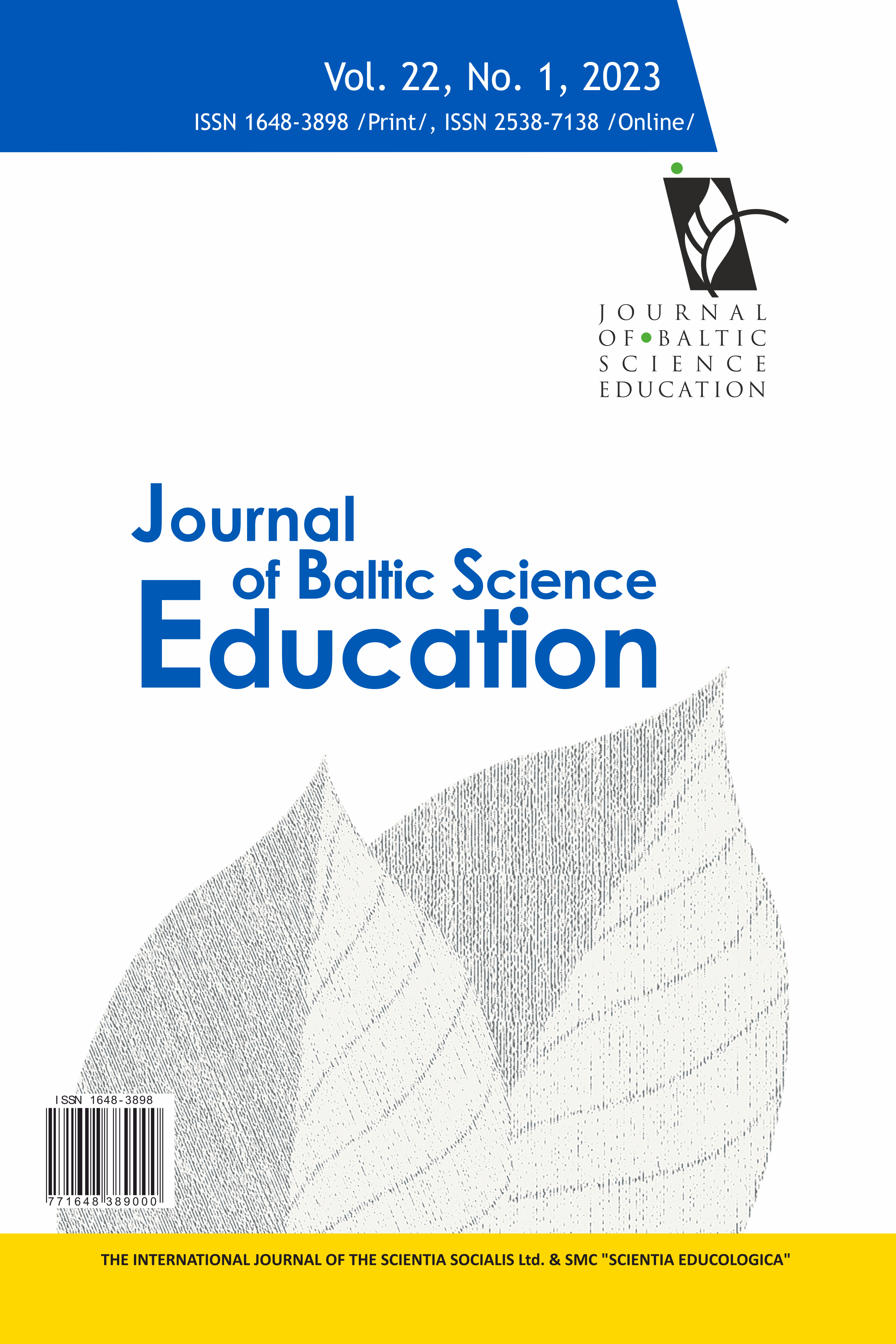COMPARING THE EFFECTS OF PHYSICAL, VIRTUAL, AND HYBRID LABS ON PRIMARY SCHOOL STUDENTS’ CONCEPTUAL LEARNING OF HEAT AND TEMPERATURE
COMPARING THE EFFECTS OF PHYSICAL, VIRTUAL, AND HYBRID LABS ON PRIMARY SCHOOL STUDENTS’ CONCEPTUAL LEARNING OF HEAT AND TEMPERATURE
Author(s): Yi-Kuan Tseng, Fan-Sheng Lin, Wernhuar Tarng, Yu-Ling Lu, Tzu-Ling WangSubject(s): Social Sciences, Education, Pedagogy
Published by: Scientia Socialis, UAB
Keywords: experimental design; heat and temperature; physical manipulative; virtual manipulative;
Summary/Abstract: Physical and virtual labs have unique capabilities that can influence how students learn from them. The purpose of this study was to examine the effect of physical and virtual manipulatives on students’ learning of heat and temperature and to examine the influence of various combinations of physical and virtual manipulatives. A total of 205 participants were divided into four groups: only physical manipulatives, only virtual manipulatives, physical-virtual manipulatives, and virtual-physical manipulatives. Students’ knowledge acquisition was tested using Pre-test–Post-test design. The results showed that physical and virtual manipulatives are as effective in facilitating students’ learning of state changes, but virtual manipulatives are more beneficial to students’ learning of thermal expansion and contraction than physical manipulatives are. Physical-virtual manipulatives are more effective than virtual-physical manipulatives or physical manipulatives alone are to promote students’ learning of heat and temperature, but this effect is similar to that of virtual manipulatives alone. The results suggest that virtual laboratories can effectively model abstract concepts. The better effect of the physical-virtual operation sequence on learning does not depend on whether the two types of experiments are combined or on the sequence of operations but on the type of experiment when its advantages actually contribute to learning.
Journal: Journal of Baltic Science Education
- Issue Year: 22/2023
- Issue No: 1
- Page Range: 153-166
- Page Count: 14
- Language: English

